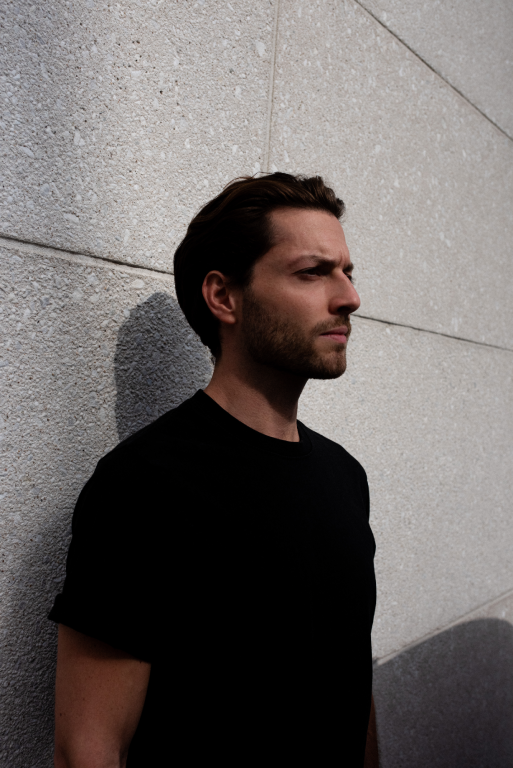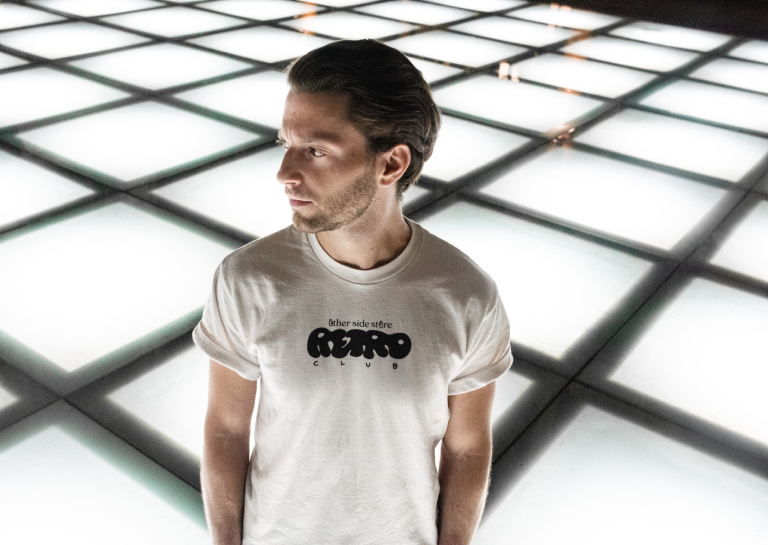LIVE
KET ROBINSON
Hi Ket, a pleasure to meet you. For those who don’t know you, how would you describe yourself and your career?
Hi, thank you very much for the invitation. So, how would I describe myself? I’ve been an electronic music producer for 13 years. I’m mostly known by the pseudonym Ket Robinson, under which I founded the label KR Records, which I launched over 5 years ago now.
However, I also have about ten other aliases, such as Rey Brennan, ERRET, Extender, KET, Nicky Ménage, KRBNS, and others.

Can you tell us why you have chosen different AKAs? Does it have to do with different approaches in your development as an artist?
I created multiple aliases because I was always searching for a new identity that would best define my style and my music. For example, Rey Brennan was meant to represent excellence, aiming only for the best labels possible, with faster music focused on drums, which I love so much! ERRET was my 100% modular and hardware project, designed for live performances, while Nicky Ménage is my micro/tech-house alias, under which I don’t produce, etc…
But this summer, after a long introspection, significant encounters, and my move to Berlin, I decided to focus entirely and exclusively on my Ket Robinson project. Where I once saw this project as an obstacle due to years of chaotic and disorganized production, I now see it as a strength, an evolution I’m proud of.
What has been the most complex task when creating your label KR Records? Have you always maintained the same artistic approach for it?
The hardest part when launching a label, beyond building a solid network of contacts for promotion, is finding an identity that is truly its own and a receptive audience for it. I have always, and will always, follow the same approach: signing music that moves me, music I have a real passion for, regardless of whether the artist has 300 followers or 30,000. The music must speak above all else! I’m especially proud of having discovered and given opportunities to many artists who have now become well-recognized names in the scene.
As for the label’s style, I initially navigated between more mental/hypnotic techno and harder, more brutal sounds, while allowing for some more experimental or singular releases. Today, I’m still open to all styles, but I’ve clearly refocused on what excites me the most: the mental/hypnotic side of things. However, I’m not ruling out the possibility of creating a new label. In the past, I even considered starting a House label. I’m keeping all doors open! ;)

What is your favorite setup when producing and performing as a DJ?
When I mix, I keep things pretty basic: I’ve switched to 100% digital for Techno, so I use 3 CDJs, my Bluesky reverb pedal, and a Xone mixer. I’m a huge fan of the Xone filter—I’ve had six different Xone mixers, and at home I play on a PX5.
When it comes to producing, I’ve been using Ableton since I started. However, before this summer, I had never used any VSTs; I stuck with Ableton’s built-in elements and did a lot of sampling. I actually started with Ableton Lite, which was limited to 8 tracks, so I had to get creative—like making an element with 4 tracks, exporting it, and then importing it back onto a single track. I think that really helped my production because it limited my options, forcing me to push my creativity even further.
I tried hardware and built my own modular system, but it’s a money pit and a huge time sink… plus, you need space, a lot of motivation, and a lot of TIME! And that’s something I don’t have, haha. So, I decided to completely stop with that.
How do you think mentoring other artists has enriched your career?
I think managing artists as an agent/manager has helped me a lot in understanding how the other side of the industry works, and it has helped me structure my own project in a more professional way, especially with the projects I’m setting up for the future this year. It also made me aware of the part I like the least: the importance of social media today and learning how to better market oneself.
Deep down, I’m truly an artist who just wants to produce music and be recognized for that, but there’s an undeniable aspect to the profession nowadays that is mandatory: self-promotion and not just being a musician. The modern artist has to play the game at least a little and communicate well about their projects, themselves, and network effectively.
If you want to add anything else, what would it be?
The only thing I would add is that you should always follow through with your desires, ideas, and projects, no matter if everything doesn’t work out, if you face failures, or if things aren’t perfect. You learn, you evolve, you grow, and so does your music! From a young age, we are bombarded with success stories, models of achievement, and perfection, but you have to be proud of the journey you’ve taken and be patient in reaching your goals. Rome wasn’t built in a day! That’s the lesson I’ve learned and applied to myself starting now and my decision to refocus myself on Ket Robinson